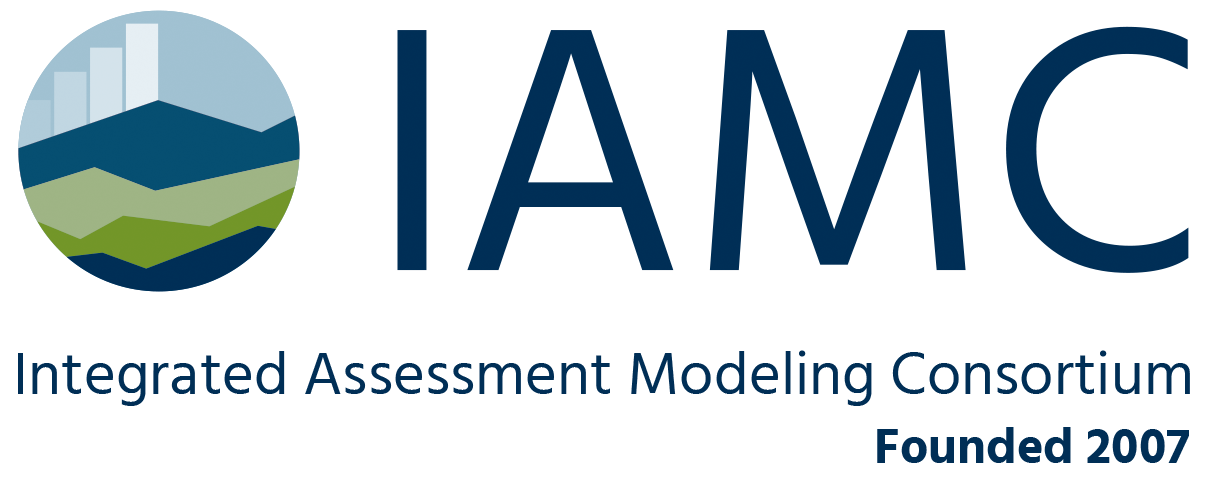
Scientific Working Group (SWG) on
Scenarios for Climate-related Financial Analysis
The Scientific Working Group (SWG) on Scenarios for Climate-related Financial Analysis aims to facilitate the discussion of the potential use and development of integrated assessment modeling (IAM) scenarios for the finance sector, companies, regulators, and other stakeholders, for the purpose of assessing financial risk due to climate change (physical risk) and climate policy (transition risk) as well as informing about the potential role of finance in transition pathways to a low carbon future. The Finance SWG will serve the Integrated Assessment Modeling Consortium (IAMC) and the advancement of science for climate-related financial analysis by facilitating the exchange of ideas and coordination within the IAMC. It can also facilitate and coordinate interactions of the IAMC community with potential scenario user groups in the finance sector, including asset owners, asset managers, strategic planners, development and central banks.
Motivation
Reaching long-term mitigation targets requires a transformation of the energy- and land-use systems, with strong implications for businesses and industries, including financial institutions. The degree of emissions mitigation in turn implies different climate change outcomes, which will also affect businesses and industries.
The recommendations of the Task-Force on Climate-related Financial Disclosures (TCFD) have elevated the visibility of scenario analysis for the identification and quantification of financial risk that could emerge from rapid regulatory changes to limit climate-related emissions (called “transition risk” by the TCFD) and from damages due to climate impacts (called “physical risk” by the TCFD). At the same time, there is increasing interest in mitigation scenarios to assess the potential role of finance in transition scenarios towards long-term climate policy goals and associated investment strategies. The Network for Greening the Financial System (NGFS) has identified the transition to a climate friendly society and promoting environmentally sustainable growth as both opportunity and vulnerability for financial institutions and the financial system as a whole.
The Finance SWG is based on the recognition that the IAM community can be a key provider of scenario information and guidance for climate-related financial analysis. It is mostly scenarios from research institutions that form the basis of scenario information for reports by the Intergovernmental Panel on Climate Change (IPCC), which in turn is the key scientific input to international climate negotiations under the United Nations Framework Convention on Climate Change (UNFCCC) and national policy discourses. The IAMC community has explored a range of scenarios along various dimensions (immediate climate policy vs. delay, availability of key technologies, different socio-economic futures, etc.). This breadth of results can allow the finance and business communities to better understand uncertainties and scenario assumptions and their implications for climate-related financial risk assessments.
Planned Activities
The Finance SWG will meet in person and over scheduled teleconferences to establish and entertain a range of activities.
Examples of the type of activities that the Finance SWG may undertake include:
- Facilitate dialogue within the IAM community to advance science and the appropriate use of scenarios for climate-related financial analysis
- Exchange information between IAMC members on current scenario applications by the finance and business communities.
- Facilitate and support dialogue between the IAMC community and these communities, including outreach and communication activities.
- If identified as useful, coordinate on the archival, documentation, and communication of scenario data for uptake by the finance and business communities.
The SWG recognizes the wide range of potential users of scenarios for climate-related financial analysis, including banks, insurers, asset managers, regulators, companies, other stakeholders, and governments. This may call for tailored approaches and interface activities to serve such a wide range of users.
The SWG at IAMC Meetings
SWG session at the 15th Annual IAMC Meeting, December 2022
SWG session at the 14th Annual IAMC Meeting, December 2021
SWG session at the 13th Annual IAMC Meeting, December 2020
Overview of the SWG and introduction to the SWG session at the 12th Annual IAMC Meeting in Tsukuba 2019
Co-chairs
Members
Alaa Al Khourdajie (Imperial College), Nico Bauer (PIK), Christoph Bertram (PIK), Valentina Bosetti (CMCC), Laura Delsa (PIK), Jae Edmonds (PNNL), Nur Firdaus (U Kyoto), Panagiotis Fragkos (E3-Modelling), Shinichiro Fujimori (U Kyoto), Rafael Garaffa (PPE), David Gernaat (PBL), James Glynn (U Columbia SIPA), Celine Guivarch (CIRED), Mohamad Hejazi (KAPSARC), Alexandre Koberle (Imperial College London), Volker Krey (IIASA), Elmar Kriegler (PIK), David McCollum (ORNL), Brian O’Neill (PNNL), Sergey Paltsev (MIT), Stefan Pickl (UNIBW), Keywan Riahi (IIASA), Mark Roelfsema (PBL), Steve Rose (EPRI), Roberto Schaeffer (COPPE), Saritha Sudharmma Vishwanathan (NIES), Masahiro Sugiyama (U Tokyo), Massimo Tavoni (CMCC), Bas van Ruijven (IIASA), Detlef Van Vuuren (PBL), Stephanie Waldhoff (PNNL), Taoyuan Wei (CICERO), John Weyant (U Stanford).
IAMC members that are interested in participating in the work of the SWG should contact the IAMC Secretariat.


